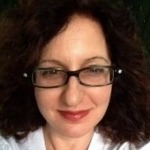One Hospital Tackles Racial and Cultural Barriers to Improve Access to Life Saving Health Screenings
// By Lisa D. Ellis //
 One size doesn’t fit all—especially when it comes to health care. That’s why one of the challenges facing health care organizations today is figuring out how to tailor their services to accommodate patients who represent a wide range of needs, beliefs, and risk factors.
One size doesn’t fit all—especially when it comes to health care. That’s why one of the challenges facing health care organizations today is figuring out how to tailor their services to accommodate patients who represent a wide range of needs, beliefs, and risk factors.
Perhaps no one knows this better than Barnes-Jewish Hospital. In a previous SHCM issue, we introduced some of the ways that this Saint Louis-based health system, which is affiliated with Washington School of Medicine, has stepped up to the plate to offer special services designed to make patients feel at home in its inpatient setting. In this second half of a two-part series, we spotlight Barnes-Jewish Hospital’s efforts to extend its personalized reach into the community, overcoming race and cultural differences to provide essential education and advocacy to ensure patients have access to life-saving screening capabilities.
Behind the Veil: Offering Culturally Sensitive Services for Women
 When it comes to women’s health screenings, you might assume that a mammogram and pap smear are pretty routine for females once they reach a certain age. But while these tests are an accepted part of preventative health care for American females, they are not always the norm for refugees living in the United States. In fact, close to two decades ago, Barnes-Jewish Hospital noticed that many women in the local Muslim community were not taking advantage of the breast cancer screening services available to them, and as a result, some of them could be putting themselves at unnecessary risk.
When it comes to women’s health screenings, you might assume that a mammogram and pap smear are pretty routine for females once they reach a certain age. But while these tests are an accepted part of preventative health care for American females, they are not always the norm for refugees living in the United States. In fact, close to two decades ago, Barnes-Jewish Hospital noticed that many women in the local Muslim community were not taking advantage of the breast cancer screening services available to them, and as a result, some of them could be putting themselves at unnecessary risk.
But this was about to change, thanks to the efforts of Taybat Ibrahimi, who was working as an Arabic/Kurdish interpreter at Barnes-Jewish Hospital’s Center for Diversity and Cultural Competence. “I wanted to do something to help reach women who knew very little about what is considered standard health care in the United States,” she explains.
